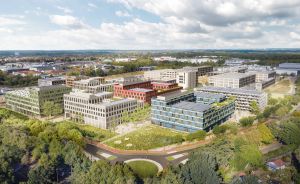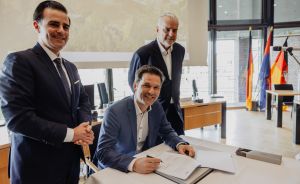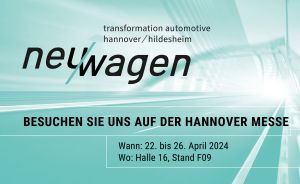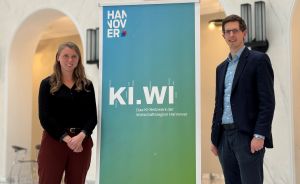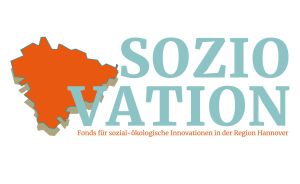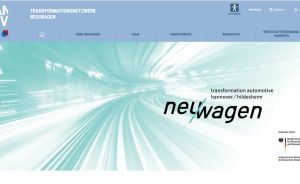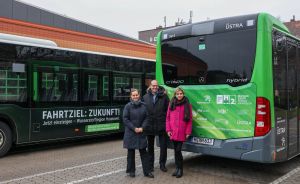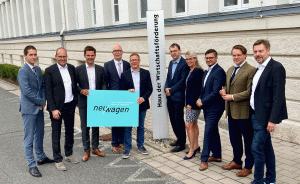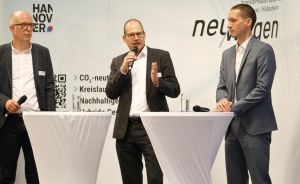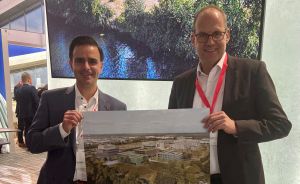Generation H2 - the Hannover Region's hydrogen program
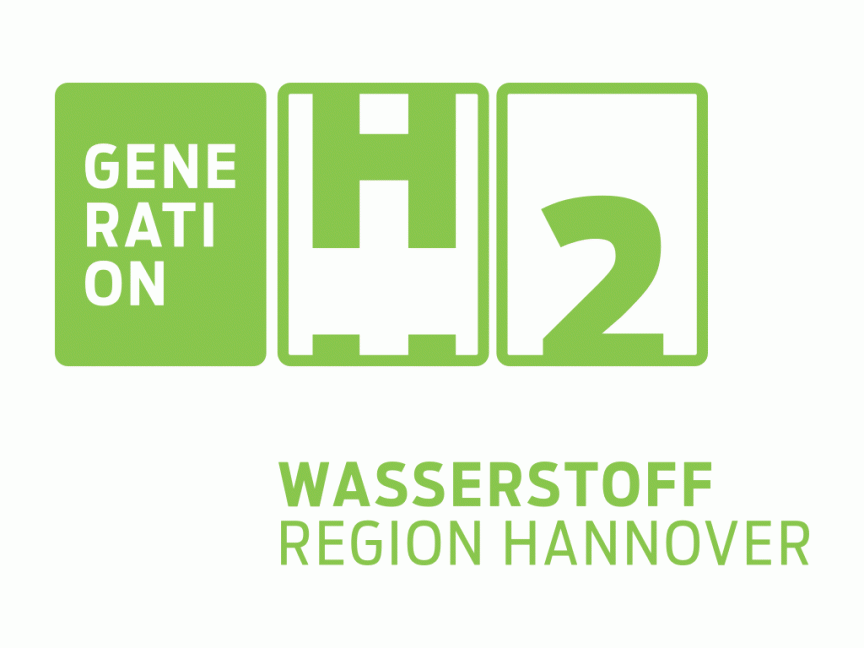
Climate protection is no longer a marginal topic in economicreports, but a clear political objective. It is clear that the costs caused by further global warming could be many times higher than the investment in innovative prevention measures, for example to reduceCO2 emissions.
The rapid development and use of hydrogen technology is an important building block in achieving the climate protection targets set by the German government and the Hannover Region. It is essential to establish regional H2 value chains with partners who can produce (green) hydrogen economically and those who can use hydrogen. According to the current state of the art, the use of hydrogen offers particular potential in terms of high ecological and economic benefits, especially for heavy vehicles and ships.
The challenges of comprehensive hydrogen production and use in the future are complex
- The high demand for "green" hydrogen requires a massive expansion in the generation of electricity from wind power and solar plants.
- The existing filling station infrastructure and hydrogen production facilities are far from sufficient. Construction and operation are still uneconomical due to the currently low sales volumes. The same applies to the construction and operation of hydrogen-powered vehicles, as although the costs per 100 km of mileage are now almost competitive, the vehicles are still too expensive due to the low production volumes and the filling station network is too thin. This "chicken and egg" problem must be overcome.
Our ambitious program initiative pursues three central regional policy objectives:
- Achieving the Hannover Region's climate protection targets.
- Investments in the regional economy with high employment policy significance.
- Strengthening the future viability of the regional economy by implementing new technologies that promise high growth rates in future markets.
How should this be done?
An important solution is the rapid establishment of cross-industry partnerships (project-related cooperation). Business partners who produce hydrogen economically and those who can use it must be brought together.
In addition, opportunities must be sought in various sectors to reduce CO2 emissions through the use of hydrogen. These could be, for example, innovative projects to reduceCO2 emissions incement production - as one of the main emitters ofCO2 -or projects to produce climate-neutral fuels for aircraft and ships.
At regional level, this means mobilizing companies to develop and implement solutions for industrial uses in connection with hydrogen technology. Funding and venture capital as part of the Hannover Region's hydrogen program should accelerate this process.
For example, the Herrenhausen sewage treatment plant, the largest in the Hanover region, is working on setting up an electrolysis plant as part of an innovative pilot project.
Pure oxygen is required for wastewater treatment, but waste heat and hydrogen are also used by means of sector coupling.
This is a highly interestingsource of H2 inthe Hannover Region, which can be used in particular for heavy commercial vehicles, i.e. buses, refuse collection vehicles and trucks. The region is working with its subsidiaries AHA, Üstra and Regiobus to establish a corresponding supply infrastructure for the municipal vehicle fleet. In this way, the Hannover Region is using its potential as an early adopter and is investing in the development of an H2 infrastructure itself as an innovation accelerator for the Hannover economic region.
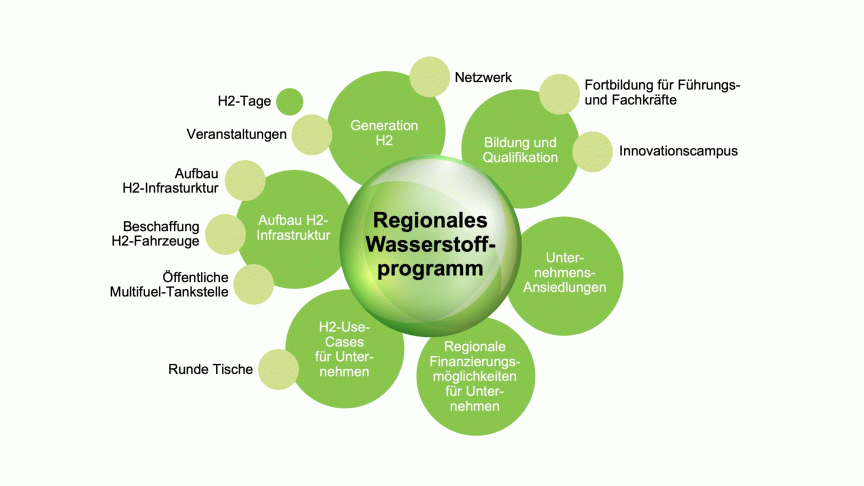 Hanover Region
Hanover RegionDeveloping hydrogen as an important energy source on the way to aCO2-neutraleconomic area is a challenge that can only be mastered jointly, interdisciplinary and with know-how transfer between industry, research, education and administration.
In addition to the challenge of developing application technology suitable for widespread use and establishing the necessary supply infrastructure, the developmentand transfer of H2 expertise and know-howisakey component in establishing the technology in companies.
Leibniz University's further education and training program in collaboration with the University of Oldenburg and the H2 research campus at Leibniz University will create important facilities that will train highly qualified H2 experts in the region and anchor research directly in the region. The short line between research and companies is supported by information events for the exchange of knowledge.
Contact us
Kai Weber
Hanover Region
Economic Development
Department of Economic Development and Employment Promotion


